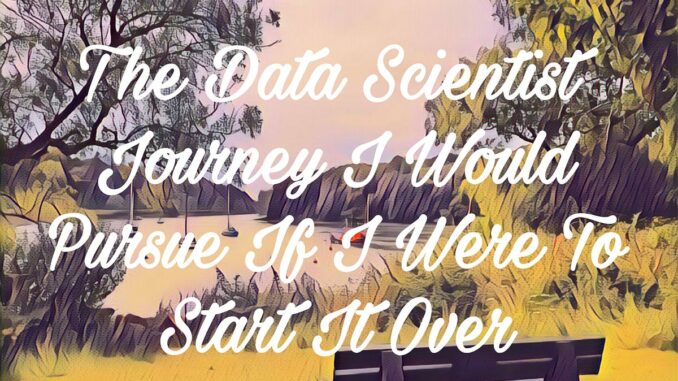
Learning the Basics
The first step in your data science journey is building a solid foundation in statistics and mathematics. Understanding concepts of probability, distributions, hypothesis testing, linear algebra, and calculus is not just important; it’s crucial. These topics form the backbone of data analysis and modelling. Concurrently, gaining proficiency in programming languages, specifically Python and R, is essential, as they are the most widely used in the data science community for their versatility and extensive libraries. This knowledge will give you a secure and knowledgeable base to build upon.
Data manipulation and analysis skills are also vital. Using libraries, including Pandas and NumPy, for data manipulation and visualisation tools like Matplotlib and Seaborn for data representation will enable you to handle and present data effectively.
Educational Pathways
Online courses and books provide an excellent starting point. Platforms such as Coursera, edX, Udacity, and Khan Academy offer comprehensive courses on data science. Essential readings include “Python for Data Analysis” by Wes McKinney, “Introduction to Statistical Learning” by James et al., and “Hands-On Machine Learning with Scikit-Learn and TensorFlow” by Aurélien Géron. These resources provide a solid foundation in both theory and practical application.
Hands-on Practice
Practical experience is vital. Start with small projects and gradually take on more complex ones. Kaggle competitions are an excellent way to practice and learn from a community of data enthusiasts. Working with real-world datasets will help you understand the importance of data preprocessing and cleaning. Perform exploratory data analysis (EDA) to uncover patterns, correlations, and insights from data, which is a critical step in the data science workflow. This hands-on experience will give you the confidence and preparation you need to succeed in the field.
Specializing in Key Areas
As you progress, delve deeper into specialised areas. Learn the basics of machine learning, including supervised and unsupervised learning, and study algorithms such as linear regression, decision trees, clustering, and neural networks. Familiarise yourself with big data technologies like Hadoop and Spark and databases, including SQL and NoSQL, which are essential for handling large datasets. Explore advanced topics like deep learning, including neural networks, convolutional neural networks (CNNs), and recurrent neural networks (RNNs) using frameworks such as TensorFlow and PyTorch.
Building a Portfolio
Creating a solid portfolio is essential for showcasing your skills to potential employers. Publish your projects and code on GitHub to demonstrate your technical skills and ability to complete projects. Write about your projects and methodologies on platforms like Medium or a personal blog to show your communication skills and thought process. Participate in Kaggle competitions to improve your rankings and demonstrate your problem-solving abilities to the data science community.
Networking and Community Involvement
Engage with the data science community by attending meetups, webinars, and conferences. Networking with peers and learning from experts can provide valuable insights and opportunities. Participate in online communities on Reddit, Stack Overflow, and LinkedIn, and join data science groups and forums to stay updated and seek guidance.
Advanced Education and Certifications
Consider pursuing a master’s degree in data science or a related field for a formal education path. Additionally, certifications from recognised organisations, such as the IBM Data Science Professional Certificate, Microsoft Certified: Azure Data Scientist Associate, or Google’s Data Engineer certification, can bolster your credentials.
Applying for Jobs and Internships
When you’re ready to enter the job market, tailor your resume and cover letter to highlight your skills, projects, and achievements relevant to data science. Use job portals, including LinkedIn, Indeed, and Glassdoor, to find job opportunities and apply for internships to gain practical experience and improve employability.
Continuous Learning
The field of data science is rapidly evolving. To stay competitive, keep up with the latest trends, research papers, and technological advancements. Embrace lifelong learning by continuously exploring new tools, techniques, and methodologies.
In conclusion, starting a journey in data science requires dedication, continuous learning, and practical application. I wish you a fulfilling career in this dynamic and impactful field!

Be the first to comment